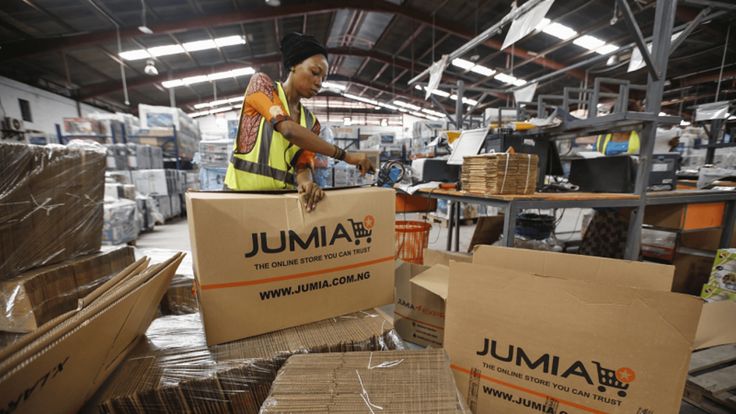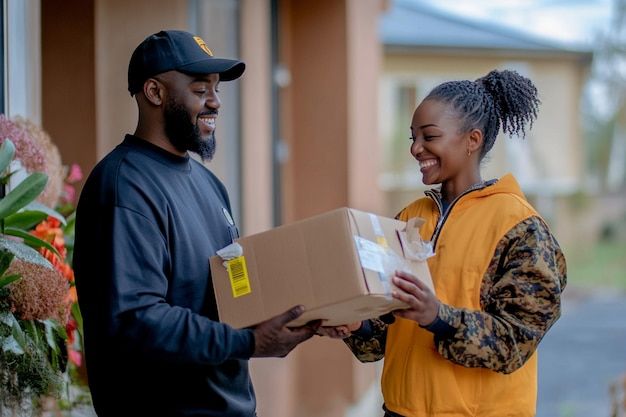The Jumia Story: Lessons From Africa’s First Tech Unicorn

Introduction
When Africans were still learning to trust the internet and navigate the online space, Jeremy Hodara and Sacha Poignonnec, ex-McKinsey consultants, founded Jumia in 2012 along with Tunde Kehinde and Raphael Kofi Afaedor. They built what has now become one of the biggest online stores in Africa, with a daily influx of users ordering goods and having them delivered right to their doorsteps all from the comfort of their homes.
Called the “Amazon of Africa,” this description doesn’t fully capture what Jumia truly represents and what it has accomplished since its inception. Jumia was never just about buying things online, it challenged Africa’s deepest barriers: distance, trust, and convenience. At the click of a button, you could order something from your phone in Lagos and have it delivered to your door. Shoes, food, phones, fridges and even a generator if the lights went out. For a continent accustomed to long queues, chaotic markets, and middlemen, this felt like a miracle.
A miracle no one saw coming. And perhaps, one that should inspire other Africans to create more solutions like this, because the continent is in dire need of many more. Africa is rich in natural resources and human capital; what it needs is the courage to transform that wealth into everyday innovations that change lives.
So the question is: will Africa continue waiting for miracles, or will it rise to create them?
From Lagos to the Continent
Jumia started in Nigeria, Africa’s largest market, at a time when broadband was a luxury, mobile data was expensive, and online payments were a gamble. If you wanted a new pair of shoes, a blender, or even a smartphone, you either went to the market or begged a friend traveling abroad to bring one back, because trust was not negotiable, and one had to be sure where their money was going.
Yet Jumia defied the odds. The hunger for solutions matched the chaos of everyday life. Lagos with its legendary traffic jams was a perfect testing ground. If you could make deliveries work there, you could make them work anywhere.

Soon, Jumia spread its wings. By 2014, it was operating in more than ten African countries—Kenya, Egypt, Morocco, Ivory Coast, and South Africa. Each market came with its own hurdles: bad roads, skeptical consumers, and inconsistent payment systems. But Jumia didn’t just import Silicon Valley playbooks. It adapted.
In Nigeria, it embraced cash-on-delivery, because people didn’t trust online payments.
In Egypt, it leaned on strong logistics partnerships to build trust.
In Kenya, it capitalized on M-Pesa, Africa’s most successful mobile money platform.
The company was not just selling products, it was building the very infrastructure needed for e-commerce to survive in Africa. It drove real growth, offering not just solutions but also opportunities to countless Africans who found new ways to trade, earn, and connect in the digital economy.
The Ripple Effect: Glovo, Bokku, and Others
If you didn’t notice, Jumia’s story sparked a wave. If Jumia could convince Africans to click and trust, then other players could carve their niche too.
In West Africa, Bokku emerged as a local marketplace, connecting communities and small businesses. In East Africa, Glovo entered the scene, delivering meals, groceries, and essentials at the tap of a button. Across the continent, startups like SafeBoda in Uganda, Yoco in South Africa, and Kobo360 in Nigeria began rewriting how Africans move, trade, and pay. Each one picked up a piece of the puzzle Jumia had started to lay down—and each brought its own solution to Africa’s everyday struggles.
Food delivery apps, ride-hailing services, and small logistics startups are now part of normal life for many Africans. From Accra to Nairobi, from Cairo to Johannesburg, the continent’s digital ecosystem is no longer an experiment, it is fully alive. Jumia may not have monopolized the market, but it achieved something far more valuable: it proved that e-commerce could work in Africa, and in doing so, it legitimized digital entrepreneurship on the continent.
Because when one pioneer makes change possible, others inevitably follow. The path becomes clearer, the trust becomes stronger, and the opportunities multiply.
Beyond the Hype: The Hard Truths
Of course, Jumia’s path was not without cracks. In 2019, it became Africa’s first tech unicorn to list on the New York Stock Exchange. The world celebrated. Headlines declared it the dawn of Africa’s digital revolution.
But behind the fanfare were real struggles. Fraud, logistical nightmares, and unprofitable models quickly dimmed the IPO glow. Critics dismissed Jumia as overhyped, more European than African in structure and argued it was still unable to tame the continent’s toughest problems. For many, the dream seemed bigger than the reality.
Yet here’s the thing: the IPO was never the real story. The real story was the millions of people who now shop online without hesitation. The small traders who discovered new markets. The students who could order books without waiting weeks for imported stock. The single mothers who saved precious hours by ordering groceries online.
That is impact. That is innovation. Not in ringing bells on Wall Street, but in making daily life just a little easier, more convenient, and more hopeful for ordinary Africans.
The African Lesson
This is where governments should be paying attention. Companies like Jumia, Glovo, and Bokku are not just startups chasing profit, they are solving problems. Like them, African states should no longer ignore lapses and loopholes in their economies.
The ordinary African in remote communities is still brimming with hope for a better future, and that hope should not be cut short. Across the continent, governments must drive innovation, formulate business-friendly policies, and create enabling environments for growth. At the same time, Africans should not sit back, waiting for change to happen. Progress comes when human capital drives transformation with real work and innovation.
Platforms like Jumia, fintech apps, and mobile banking have already shown tremendous progress:
Logistics: Where public transport fails, delivery bikes step in.
Payments: Where banks are slow, mobile money builds trust.
Access: Where rural markets are underserved, e-commerce connects buyers and sellers.
Instead of treating these ventures as easy tax targets, governments should see them as partners in development. Supporting and scaling them sustainably is an investment in Africa’s future. Because e-commerce is not just business, it is infrastructure. And in a continent where infrastructure is chronically broken, startups are quietly patching the cracks.
The Real Unicorns
Maybe Jumia will never rival Amazon in profits. Maybe Glovo won’t dominate Africa’s fragmented delivery landscape. But the true unicorns are not measured in quarterly earnings reports, they live in everyday life. Real change doesn’t always happen in the spotlight; it happens quietly, in places we often overlook.

In the delivery rider who weaves through traffic to bring a package in the rain.
In the cashier who smiles when mobile payments go through instantly.
In the young entrepreneur who opens an online store instead of being limited to a local stall.
These stories don’t make Wall Street headlines, but they make Africa move. They are the real unicorns, the ordinary people turning innovation into progress, one transaction, one delivery, and one dream at a time.
The Whisper of Real Change
The lesson from Jumia is simple but powerful: real change doesn’t always announce itself with a megaphone. Sometimes, it whispers and yet its impact is felt by all.
It’s in the quiet shift when people stop asking, “Can I trust this?” and start asking, “When will it arrive?”
It’s in the growing confidence of a continent that begins to see technology not as foreign, but as homegrown solutions to its unique challenges. Africa doesn’t need to depend solely on imported ideas and products; it needs to cultivate and embrace what it already has.
And maybe, just maybe, it’s in the reminder that Africa doesn’t need to copy Silicon Valley to innovate. It only needs to solve its own problems, one delivery, one payment, one solution at a time. Because in the end, uniqueness is what makes innovation thrive.
Final Thought
The Jumia story is not about hype, it’s about persistence.
It’s about proving that African innovation is not theoretical, it’s practical.
That true progress is measured not in IPO bells or profits, but in how it touches the lives of millions quietly, daily, relentlessly.
So, the next time you see a delivery rider with an orange box weaving through Lagos traffic, remember: that’s not just a package. That’s Africa’s innovation at work.
Real impact doesn’t shout.
It changes everything, silently.
Recommended Articles
Consumer Watchdog Slams Google's AI Shopping Protocol, Tech Giant Fires Back

Google's new Universal Commerce Protocol for AI shopping agents has drawn criticism from a consumer watchdog, citing con...
AI Video Breakthrough: Mirelo Secures $41M to Silence Industry's Biggest Problem

Mirelo, a Berlin-based AI startup, has raised $41 million in seed funding to advance its technology for adding synchroni...
You may also like...
When Sacred Calendars Align: What a Rare Religious Overlap Can Teach Us

As Lent, Ramadan, and the Lunar calendar converge in February 2026, this short piece explores religious tolerance, commu...
Arsenal Under Fire: Arteta Defiantly Rejects 'Bottlers' Label Amid Title Race Nerves!

Mikel Arteta vehemently denies accusations of Arsenal being "bottlers" following a stumble against Wolves, which handed ...
Sensational Transfer Buzz: Casemiro Linked with Messi or Ronaldo Reunion Post-Man Utd Exit!

The latest transfer window sees major shifts as Manchester United's Casemiro draws interest from Inter Miami and Al Nass...
WBD Deal Heats Up: Netflix Co-CEO Fights for Takeover Amid DOJ Approval Claims!

Netflix co-CEO Ted Sarandos is vigorously advocating for the company's $83 billion acquisition of Warner Bros. Discovery...
KPop Demon Hunters' Stars and Songwriters Celebrate Lunar New Year Success!

Brooks Brothers and Gold House celebrated Lunar New Year with a celebrity-filled dinner in Beverly Hills, featuring rema...
Life-Saving Breakthrough: New US-Backed HIV Injection to Reach Thousands in Zimbabwe

The United States is backing a new twice-yearly HIV prevention injection, lenacapavir (LEN), for 271,000 people in Zimba...
OpenAI's Moral Crossroads: Nearly Tipped Off Police About School Shooter Threat Months Ago
ChatGPT-maker OpenAI disclosed it had identified Jesse Van Rootselaar's account for violent activities last year, prior ...
MTN Nigeria's Market Soars: Stock Hits Record High Post $6.2B Deal

MTN Nigeria's shares surged to a record high following MTN Group's $6.2 billion acquisition of IHS Towers. This strategi...
